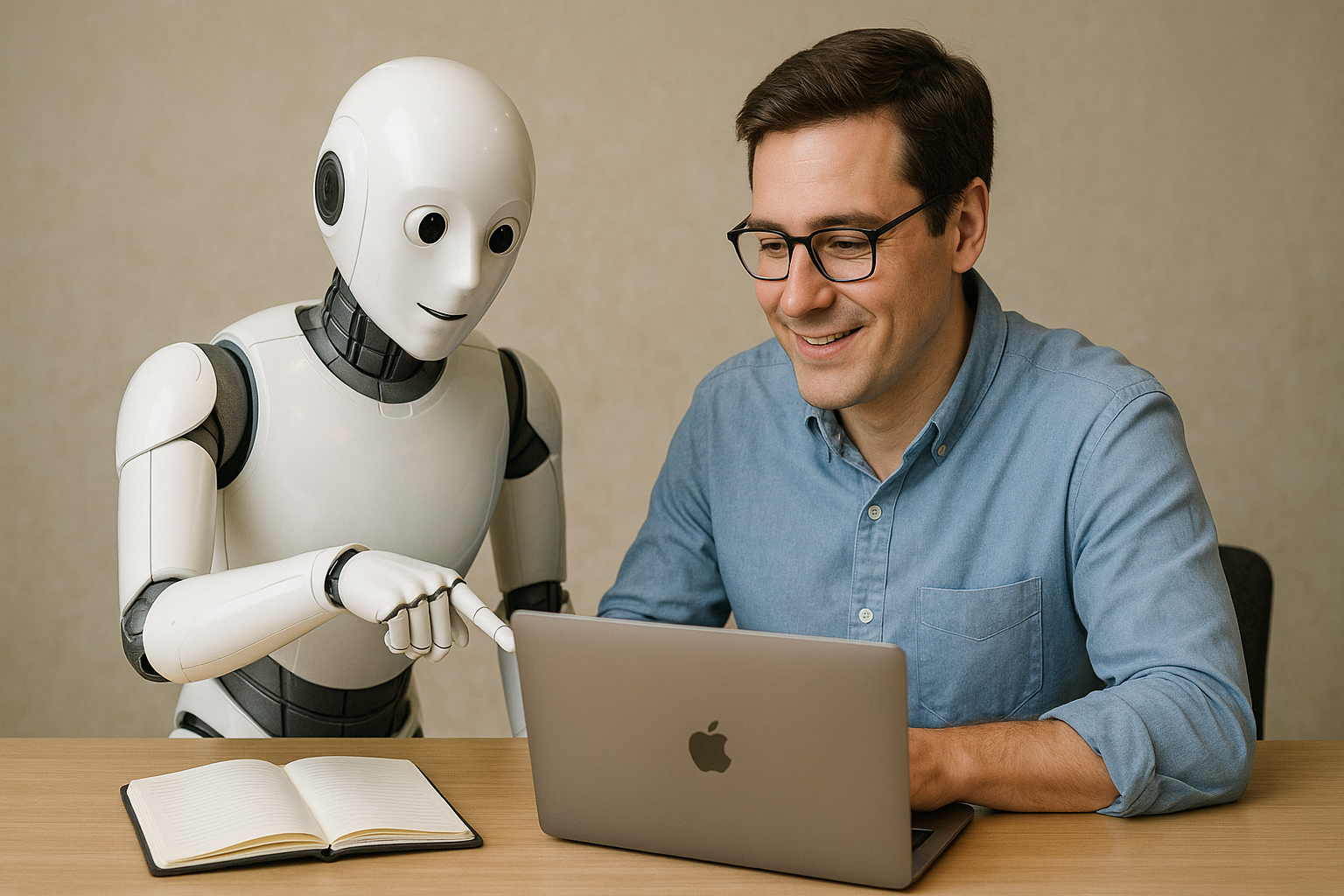The Robots Aren’t Coming for Your Job — Your Colleague Is, Armed With a Robot

Image generated by OpenAI’s DALL·E, via ChatGPT

Image generated by OpenAI’s DALL·E, via ChatGPT
Let’s clear up the headline-grabbing panic once and for all: Artificial intelligence is not going to take your job.
But a human — who knows how to use AI better than you — will.
This distinction matters — not just semantically, but existentially. It reshapes how we should think about work, power and responsibility in the dawning era of machine intelligence. Because while science fiction has long warned us about sentient androids rising up to replace us, the real threat is much more mundane: a peer, a competitor, a go-getter who sees AI not as a menace but as a multiplier.
The narrative of automation-driven obsolescence has haunted workers for centuries, from the Luddites of the Industrial Revolution to the factory laborers displaced by robots in the 20th century. AI, especially the generative kind, has added new fuel to those fears — and understandably so. Chatbots write emails. Image models generate ad campaigns. Algorithms draft legal contracts, summarize meetings, code apps, diagnose illnesses, compose music and mimic human voices with uncanny fluency.
But here’s the thing: they’re not doing it alone.
For all its speed and statistical brilliance, AI lacks context, judgment, taste, tact, ethics and accountability. It doesn’t know your brand guidelines, your client’s temperament, your boss’s unwritten expectations or the delicate power dynamics of a boardroom. It doesn’t understand what’s politically risky, socially inappropriate or just bad timing. You do.
That’s why the winning formula in today’s economy is not AI alone — it’s AI plus you. Or, more precisely, AI plus the version of you that knows how to wield it.
We’re entering what economists call a “complementarity era,” where the most valuable workers are not the fastest or even the most skilled in a narrow sense, but the most adaptive. The most curious. The ones who know how to ask better questions, frame better prompts, fact-check outputs and shape AI-generated drafts into something smart, nuanced and useful. In short: the people who know how to work with AI, not against it.
This has already begun. Marketers use AI to test campaign variations in minutes that once took days. Lawyers feed legal models entire case files to spot precedents. Teachers generate individualized lesson plans. Real estate agents automate listings, descriptions and pricing insights. Coders use AI pair programmers to ship features faster. The gains are not magical; they’re practical — and they compound quickly.
What this means, uncomfortably, is that AI is becoming the new Excel. It’s not replacing the job — it’s becoming a prerequisite for doing it well.
If you ignore this shift, your job may well become vulnerable. Not because the algorithm wants it — but because the person next to you is using the algorithm to do more, faster, better. They’re not superhuman. They’re just augmented.
This dynamic raises urgent questions for employers, educators and newsroom leaders. Are we training students not just in facts and formulas, but in how to think with machines? Are companies giving workers time and support to learn new tools — or quietly rewarding those who race ahead on their own? Are editors giving journalists the freedom to explore AI ethically and responsibly — and holding them accountable when mistakes happen, to prevent future mishaps like the Chicago Sun-Times’ AI-generated “Best of Summer” reading list? Are we still measuring productivity in old terms, or rethinking output through a hybrid human-machine lens?
Perhaps most crucially, are we being honest about what’s happening? Because the narrative of “AI will take your job” is passive, and thus disempowering. It makes the future feel like a storm you can’t escape. But “someone using AI will take your job” is active. It’s a call to action.
So let’s stop waiting for the singularity. Let’s start preparing for the coworker who already figured out how to use GPT to do in one hour what used to take you three. That person didn’t get replaced. They leveled up.
Now it’s your turn.